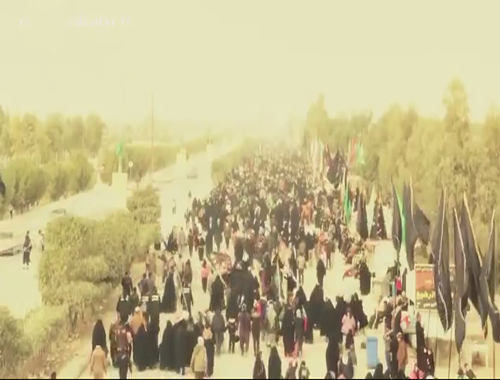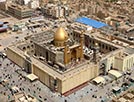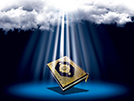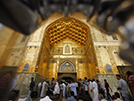(A) The Eloquence Of The Qur’Än
- Details
- Hits: 1870
(A) The Eloquence Of The Qur’Än
The language of the Qur'Än is of such high standard that nobody could meet its challenge. Arabs of the time of the Prophet were proud of their language since it was a very rich and sophisticated one. Poets and eloquent speakers were almost idols of their tribes. Poems were learned and read on every occasion, and yearly competitions were held for the best pieces of poetry in a place called Suq Ukadh. Thus language and literature was the best art the Arabs had mastered very well.
The Qur'Än came and its miracle, to the Arabs' surprise, was its language and style. The Qur'Än was the challenge; God asked them to produce a similar Qur'Än:
“Say: If the whole of mankind and jinn gathered together to produce the like of this Qur'Än, they could not produce the like of it, even if they helped each other.” (17:89)
Then the challenge was reduced to ten chapters (surahs), to show them their weakness:
“Do they say that `He has forged it'? Say: Then you bring ten surahs like it, forged and call (to your aid) whomsoever you can --other than God-- if you speak the truth.” (11:14)
Again the Arabs could not answer the challenge of the Qur'Än. The challenge was then reduced to one surah only. One surah may be only one line. Still the proud eloquent Arabs could not face the challenge: “
Do they say `He forged it'? Say: Then bring one surah like it and call to your aid anyone you can --other than God-- if you speak the truth.” (10:39)
You can see the logical reasoning and rational approach to convince the Arabs of its miraculous quality. A surah may be only one line but the Arabs (and non-Arabs too) could not succeed in their attempts to meet the standing challenge.
The beauty of the Qur'Än, the strength of its conviction, its logic and simplicity, and its depth and wisdom was far above what the Arabs or non-Arabs know or conceive. When the Qur'Än was read, the idolaters used to close their ears; some used to make noise, whistling and chanting, so that they may not hear the Qur'Än and be `bewitched'. The non-believers could not give any reasonable explanation to this irresistible beauty and power of the Qur'Än. However, they had to find some excuse to put people off and to justify their opposition. They invented lies and said, `The Qur'Än is nothing but poetry or magic.' God refuted their statement: “Therefore proclaim you the praises of your Lord, for by the grace of your Lord you are no soothsayer, nor are you one possessed.”
The Arabs waged war after war to silence the Prophet of Islam. But the easiest way would have been to produce a short surah (like al-Kawthar) of equal standard and the claim of the Prophet would have been refuted. No sane person would use a sword when a few words could serve his purpose in a more effective way. But the Arabs preferred war and it proves that they found the Qur'Än unanswerable.
To discover the Qur'Än’s eloquence, non-Arab speakers can turn to the sayings of those Arabs who were experts in the language of those days and which are recorded in history, and also to the present day authors who write on this subject. From the days of the Prophet till now, all specialists in the art of Arabic eloquence have confessed to the unparalleled eloquence of the Qur'Än and have been overwhelmed in the face of it. For example, the famous contemporary writer `Abdul FattÄh Tabari writes, “Arab history tells us of many famous men, knowledgeable in the best poetry and prose, like Ibn al-Muqaffa, Jahiz, Ibn `Amid, Farazdaq, Bashshar, Abu Nuwas, Abu Tammam and so forth, but all of them have shown humility when faced with the Qur'Än, and have of necessity confessed that the great Qur'Än is not the word of man, but a Divine revelation.”
Dr. Taha Husayn, the famous contemporary Egyptian writer, said, “The Qur'Än transcends the limits of prose and poetry, because it has special qualities which cannot be found in any poem or prose. So the Qur'Än cannot be called poetry or prose, rather it should be said, `It is the Qur'Än, that is all.'”











